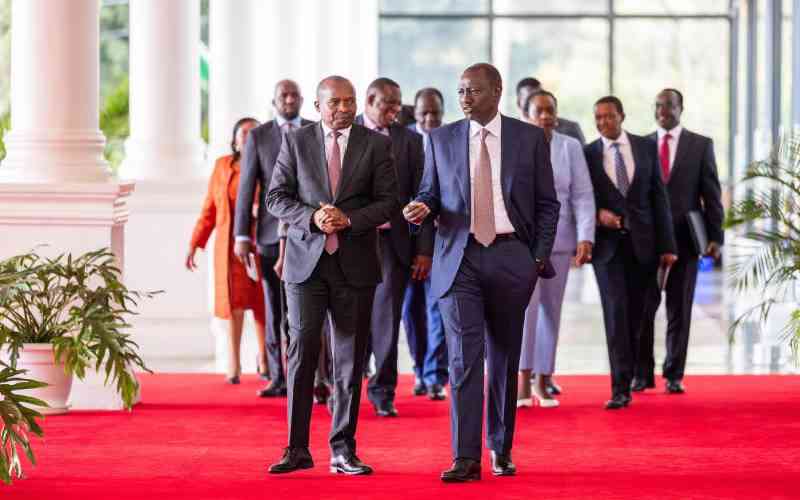×
The Standard e-Paper
Home To Bold Columnists

The Cabinet has committed to ambitious development goals, promising President Ruto to construct 10 stadiums by the end of this year, irrigate 800,000 acres, and deliver anti-retroviral therapy (ART) to 1.36 million people.